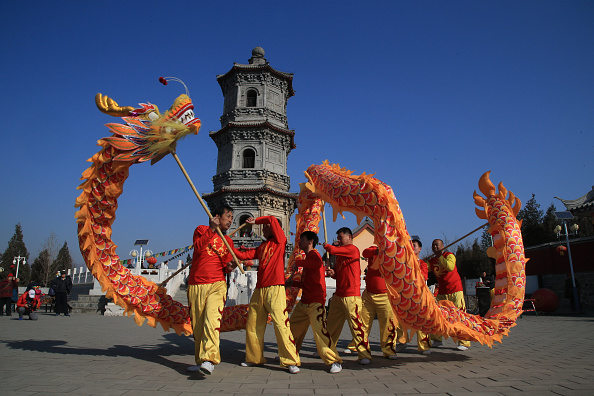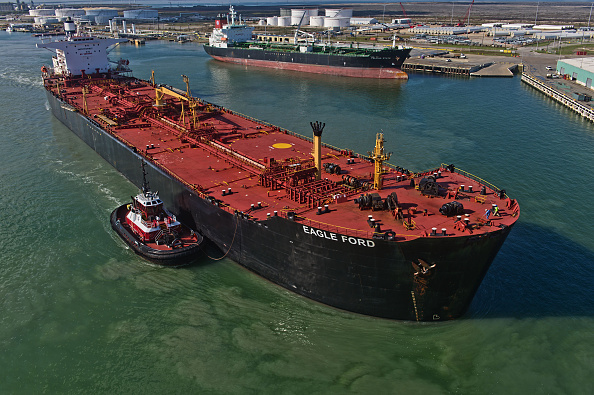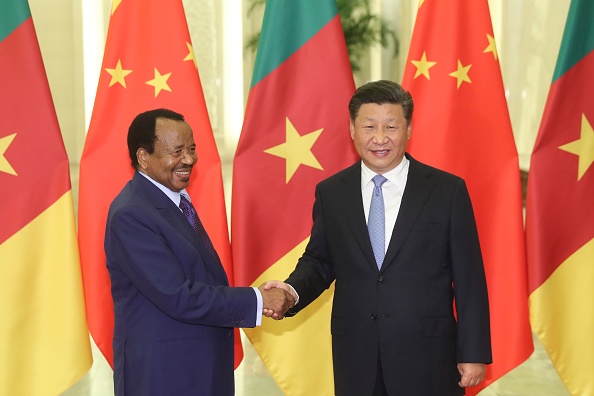
 Welcoming the Pig
Welcoming the PigWhile Lunar New Year is a time for Chinese families to be together and celebrate, there was nonetheless lots happening across the country this week as part of the celebrations.
To kick off the New Year, Beijing and Taipei released videos to showcase the strength and preeminence of their respective militaries. The Chinese People's Liberation Army (PLA)'s video "My Fighting Eagles Fly Around Taiwan" showed PLA jets and bombers; while Taiwan broadcast the message that its army was "on standby 24/7." President Tsai-Ing Wen also delivered a thinly veiled critique of China's lack of freedom on social media. Tensions between Taiwan and China have been rising in recent years, and President Xi kicked off 2019 with a message that China reserves the right to use force to bring Taiwan under its control, though it will strive for peaceful "reunification."
Back home, President Xi toured Beijing to extend his New Year greetings to its residents. He made dumplings with local families, shook hands with police officers, and promised to create more jobs. By mingling with the locals, President Xi is projecting an image of being a man-of-the-people. Meanwhile, Chinese citizens across the globe welcomed the year of the Pig with their families and loved ones, but also by hitting the shops in one of the world's biggest annual shopping sprees. In 2018, Chinese shoppers spent 926 billion yuan ($137 billion) to celebrate the New Year, but consumer confidence has since declined. All eyes are on this year's shopping spree to gauge just how resilient the Chinese economy really is.
 Trade Dispute Rattles Nerves
Trade Dispute Rattles NervesIn the coming days, shipments of U.S. oil are set to reach China. Since the trade war erupted over a year ago, the amount of U.S. oil bound for China has dropped dramatically. The news comes as China pledged to purchase 5 million tons of soybeans from US farmers last week, on top of the initial 5 million tons that were bought after President Trump and President Xi met in Buenos Aires in December. While these purchases are steps in the right direction, it is currently too early to declare the trade dispute over.
Next week, Treasury Secretary Steven Mnuchin and U.S. Trade Representative Robert Lighthizer will lead the American delegation to Beijing for the next round of mid-level US-China trade talks. The clock is ticking for the U.S. and China to reach an agreement before the March 2 deadline the Trump administration has set to more than double tariffs on $200 billion of Chinese goods.
While it is now looking increasingly unlikely that President Trump and President Xi will meet before the end of a 90-day truce, a senior administration official suggested that this only reflects that there's more work to be done by the two trade delegations, instead of a setback in negotiations. Rather, the two leaders could potentially speak by phone, according to the official.
Nevertheless, the news rattled markets this Thursday, with the Dow Jones Industrial Average dropping a steep 220.77 points. Stocks suffered a continued decline Friday morning, but were able to bounce back up, just slightly, in the final moments of trading. The US-China trade war remains the biggest concern for investors and many are uneasy about the future for the market. "The fear factor over the trade war has crept back into the market," said Peter Cardillo, chief market economist at Spartan Capital Securities. "That's going to send the market for a bumpy ride."
 China's Loans not Paying Off
China's Loans not Paying OffWhile China juggles tense economic relations with the U.S. and the European Union, it is gaining popularity in Cameroon after agreeing to write off $78 million of its debt. Analysts claim that China has made the move in order to gain further access to Cameroon's natural resources. While the debt relief is certainly a boon for the Central African nation, there is still a vast amount to be paid, as the total amount owed to China stands at $5.7 billion.
The China-Venezuela relationship also came into the spotlight this week, after China continues to throw its support behind incumbent President Nicolás Maduro, whereas the United States, Canada and Australia, along with several of Venezuela's Latin American neighbors and now a number of European countries recognize National Assembly leader Juan Guaidó as the representative of the country.
In an interview with the South China Morning Post, Guaidó said China had "extraordinary potential" to help rebuild his economically stricken nation. China is currently Venezuela's largest creditor, and cites its long standing policy of non-interference as a reason for not taking sides. However, it is unclear what would happen with Venezuela's debt to China if Maduro were to stand down.
Prepared by China-US Focus editorial teams in Hong Kong and New York, this weekly newsletter offers you snap shots of latest trends and developments emerging from China every week, while adding a dose of historical perspective.
- 2019-02-02 The Final Countdown: One Month Until Trade Talks Deadline
- 2019-01-26 How Slow Will it Go?
- 2019-01-18 Countdown to Trump-Kim: Round Two
- 2019-01-11 Kim Jong-un Visits Beijing
- 2019-01-04 Cross-strait tensions mount on anniversary
- 2018-12-21 Xi’s 40th Anniversary Speech
- 2018-12-14 Post-G20 Detentions & Tech Tensions
- 2018-11-30 Trump and Xi Set to Face Off at the G20
- 2018-11-26 Xi Strengthens Alliances in Preparation of G20
- 2018-11-16 World Leaders Meet at ASEAN and APEC Summits to Discuss Economic Strategy
- 2018-11-09 US and China Hold Delayed Diplomatic and Security Dialogue
- 2018-11-02 Presidents Xi and Trump Talk Possible Trade Deal
- 2018-10-26 With U.S. Pressure, China and Japan Grow Closer
- 2018-10-19 Secretary Mattis Meets Chinese Counterpart in Singapore
- 2018-10-12 Trump and Xi May Meet at the G20
- 2018-10-05 U.S. Vice President Articulates Hard Line on China in Speech
- 2018-09-28 A Turbulent Week For China-U.S. Relations at the UNGA
- 2018-09-21 China Will Not Purposefully Devalue the Yuan, Premier Li Keqiang Says
- 2018-09-14 China and the U.S. Discussing New Trade Talks, As Pressure Over Trade Policy Grows